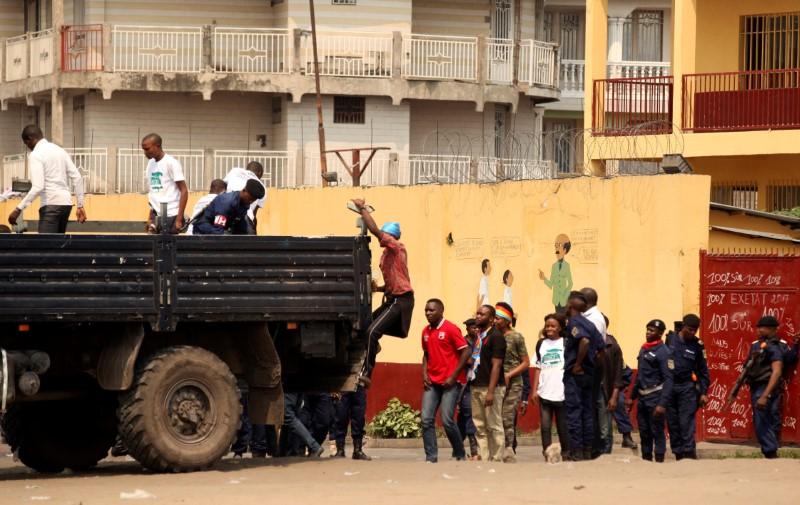
DR Congo police arrest nine in more anti-Kabila protests

Police in the eastern Democratic Republic of Congo city of Beni said they had arrested nine demonstrators during a march on Tuesday against President Joseph Kabila.
According to Beni’s deputy police chief, Lisangi Nkumu, the nine arrested were from “Lucha”, a pro-democracy group, Struggle for Change, which is campaigning for Kabila to leave office.
Nkumu added that they were demonstrating on the public highway without authorisation.
“They are being interviewed and will be handed over to the appropriate authorities.” He added.
Lucha campaigner Regina Masinda told AFP that the police intervened shortly after the start of the march and “brutally” manhandled demonstrators who had their hands in the air and had sat down on the ground.
“Nine of us were arrested,” Masinda said. “We demand their release.”
On Monday, clashes in the nearby city of Goma left four civilians and a policeman dead, an AFP reporter said.
According to the North Kivu province police, twenty eight people were arrested, two of them women.
Political tensions in the DRC are high after Kabila failed to step down after his term came to an end.
Political violence and government repression intensified in 2016 as President Joseph Kabila failed to step down after his term came to an end in December 19, 2016.
Elections were due to take place before end of 2017 under a transitional deal reached last New Year’s Eve mediated by the Roman Catholic Church.
But the country’s electoral commission says there will be no vote before early 2019, mainly because of the problems of completing an electoral roll in the troubled central region of Kasai.
The uncertainty has stoked fears of a fresh eruption of political violence in a vast, poor country already struggling with ethnic divisions and fighting in its east.
In Beni territory, North Kivu, unidentified fighters continued to commit large-scale attacks on civilians, killing more than 150 people in 2016 according to Human Rights Watch research.
Demonstrations have been banned or widely repressed since September 2016.






